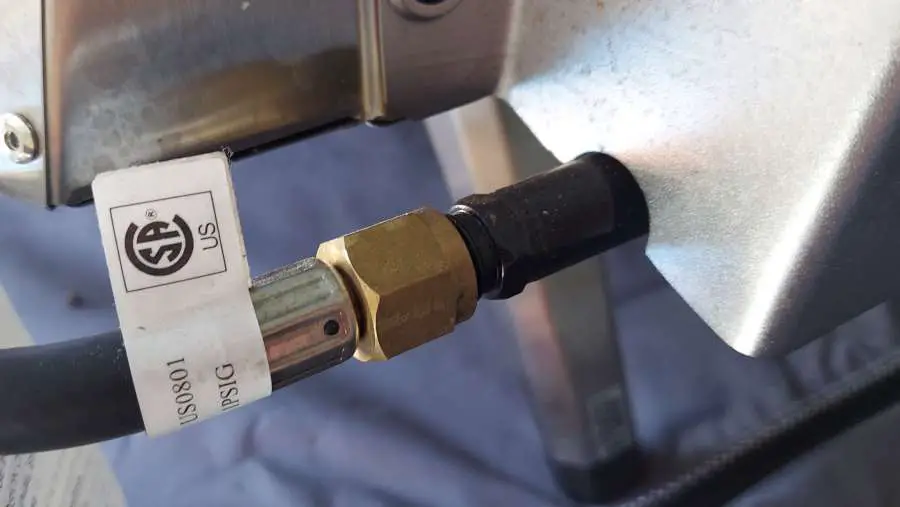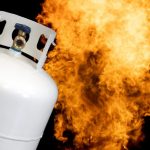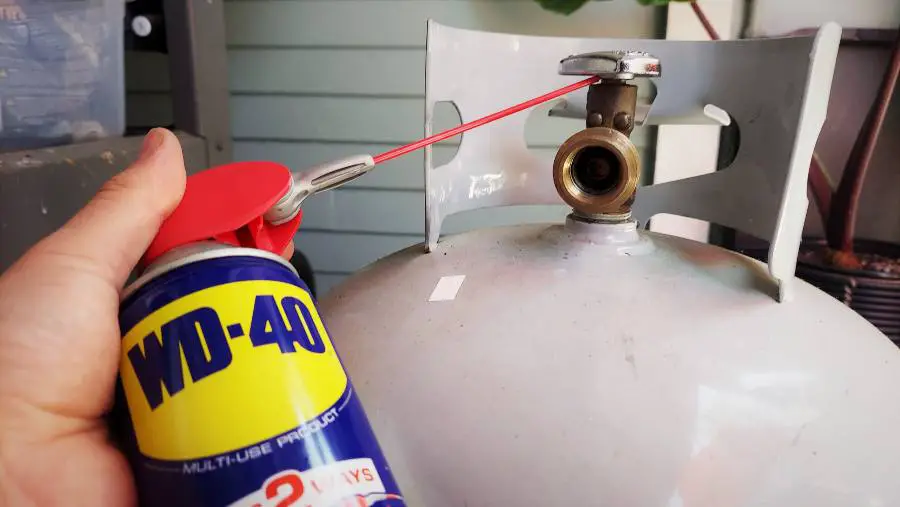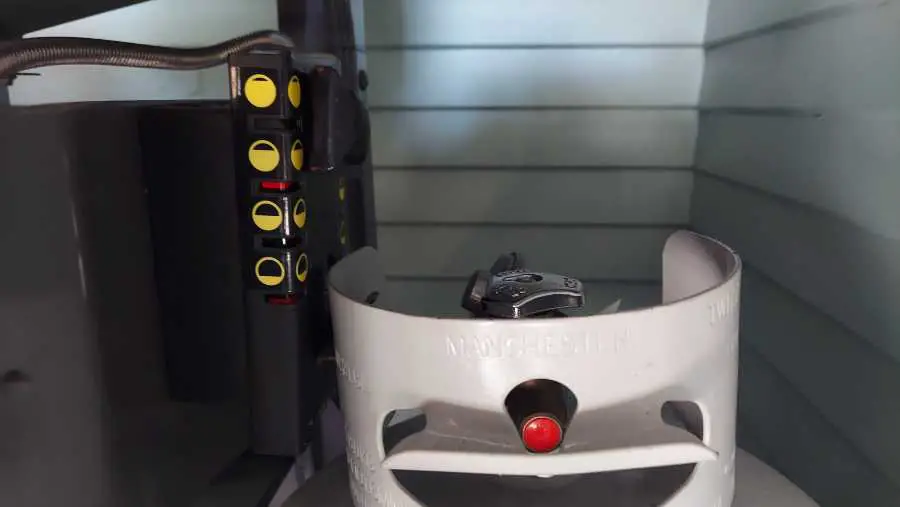Last Updated on May 23, 2024 by Dan Campbell
During the winter propane can be a lifesaver, and it’s crucial that your propane appliances are working properly when you living in freezing temperatures. However, sometimes due to the cold temperatures, propane tanks, and systems can become inoperable or malfunction. Before you assume your propane tank is frozen, let’s go over some basic information about propane.
Can propane freeze? Yes, propane can freeze at temperatures below -306°F. However, problems with propane tanks in freezing temperatures are more likely due to low pressure inside the tank than the propane being frozen. More than likely, the pressure inside your tank has dropped significantly due to the cold temperatures, and your appliance is not receiving the proper amount of gas to operate.
While propane is one of the best sources of fuel to use in cold temperatures due to its physical properties and is often recommended for off-grid generators, it does have some issues that can arise in cold weather. Let’s go over some of the properties of propane and why it’s a great fuel source for cold temperatures and some of the issues that can arise as the temperature drops in the winter months.
Propane Properties & Why It’s Unlikely It’s Frozen
Before we go into too much detail about propane tank problems in freezing temperatures and how to resolve them, let’s go over some basic properties of propane.
- Freezing Point: −188 °C; −306 °F
- Boiling Point: −42°C; −44°F
- Pressure at 70°: 124 PSI
As you can see, the freezing point of propane is roughly -306°F. The coldest ever recorded temperature on earth was -129°F. So if you’re having issues with your propane tank, it’s not because it’s frozen.
Unlike other fuels such as gasoline and diesel which can thicken as temperatures drop, propane does not. However, as the temperature drops the pressure inside your tank can drop dramatically. Let’s go over how much this can change and how to check the pressure inside your tank.
Propane Tank Pressure & How to Check
While the propane inside your tank is not freezing, what’s actually happening, is the pressure inside your tank has dropped drastically due to this colder temperature, and your appliance isn’t getting enough fuel to operate. As mentioned above, at 70°F, the typical temperature inside a propane tank is roughly 124 PSI. Go down to 32°F and the pressure inside drops to approximately 50 PSI, and at 0°F, just 25 PSI.
Additional factors such as how full the propane tank is, what BTU rating the connected appliance is, and the length of the hose or piping, and you could easily drop below the required pressure to operate your appliance.
How to Check Propane Tank Pressure
If you need to know how much propane you have, there are multiple ways of determining how much propane is in your tank. However, when it comes to knowing what the pressure of the propane in your tank is, there aren’t many options available.
Your main option is to refer to a propane pressure chart, which can tell you the pressure of propane vapor at given temperatures. Below is a basic chart I made for temperatures between -44°F and 120°F.
Your other option is to connect a propane fuel gauge to your tank. However, these typically only tell you how much propane is in your tank, but they measure the pressure to determine what the fill level is. You can buy pressure gauges that measure PSI or WC, however, I haven’t found one that readily connects to ACME connections.
Frozen Propane Regulator
While pressure inside your tank can be one reason your propane appliance is not working, another issue could be your propane regulator freezing. While this doesn’t freeze due to frozen propane, water vapor can get inside your propane tank and accidentally make its way into your regulator where it can then freeze, causing the diaphragm inside to freeze shut.
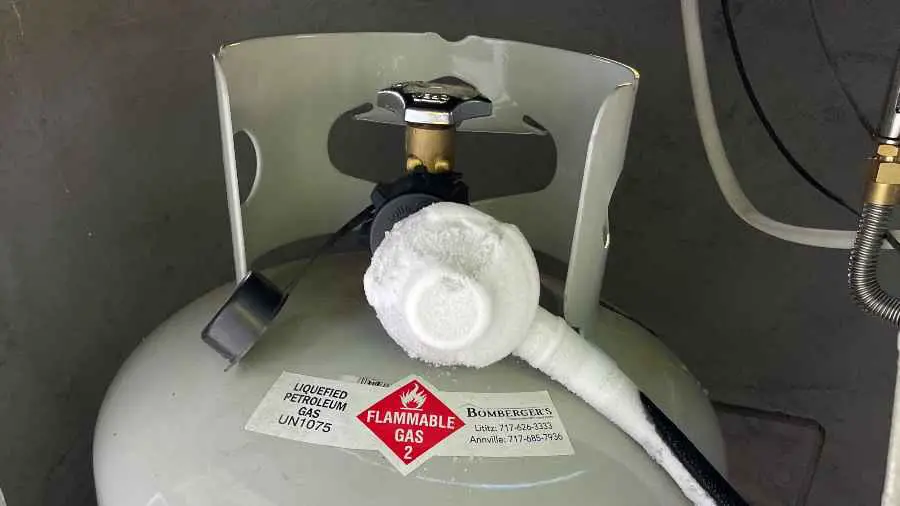
If you live somewhere where it drops below freezing often, your propane supplier probably already adds methanol into your tanks before winter to help reduce the chance of this occurring. However, if you’re traveling from somewhere warm, you may want to ask about having methanol added to your tanks, or swapping them for ones that have it.
If your propane regulator is frozen, you can always pour hot water on it, or use small hand warmers to defrost it. Take a look at my article on how to fix a frozen propane regulator for more information and details on this.
The best step you can take to reduce the chances of running into propane-related issues during winter months is to winterize your propane tanks ahead of time. Let’s go over some of the options available.
Winterizing Propane Tanks
There isn’t much that needs to be done in terms of winterizing your propane tanks. Most temperatures will be warm enough to provide sufficient pressure inside the tank for your appliances to work, however, there are some steps you can take to ensure you do not run into any low-pressure issues.
Firstly, make sure your propane tank is at least 30% full. Secondly, make sure to keep your propane tank covered to avoid being in direct contact with snow and frost, either with a specialty propane tank cover, or even just a blanket. Make sure when closing and opening the valve, you only hand tighten or loosen the valve and connections. Depending on where you live and what size propane tank you have, your local propane supplier may add methanol into your tank to reduce water moisture from freezing.
Here’s a video of maple syrup producers using a small bath of lukewarm water to help maintain the temperature of their propane tank as they use it.
If you’ll be in extremely cold temperatures such as below zero, there are some additional steps you can take, such as using propane tank warmers. While these can be a bit pricier, they will allow your propane tank to stay adequately warm enough to operate properly. this 20 lb propane tank warmer you can get on Amazon made by PowerBlanket will keep your propane tank around 90F, giving you full pressure inside your tank.
Along with keeping the tank itself warm, it’s a good idea to have some extra hand warmers laying around in case you run into issues with your regulator freezing up.
In Closing
Hopefully, I’ve answered any questions you have about propane freezing and what you can do to avoid any propane tank issues with winter. Some quick facts to recap:
- Propane can freeze but at temperatures below -306°F
- If you’re experiencing issues with your propane tank in cold weather it’s most likely pressure issues and not freezing
- While the propane inside your tank is most likely not frozen, water vapor can freeze inside the regulator
Please feel free to reach out if you have any questions or comments.
Thanks for reading and God Bless!

